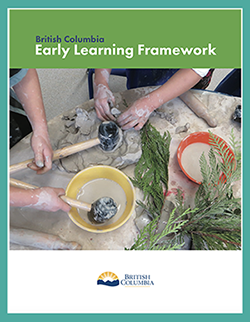Module 6: Living Inquiries – Identities, Social Responsibility, and Diversity
Individual Differences
Children and adults accept and value differences in others and in themselves.
Critically Reflective Questions
- How can children be encouraged to accept and value differences in themselves?
- How can I initiate conversations with colleagues about values, practices, and procedures (for example, eating, sleeping, self-care) embedded in the program? What assumptions about childhood are implicit in these practices? How are they aligned with mainstream culture?
- Do these practices and procedures make every child feel that they belong?
- How might I begin conversations with families about the values, practices, and procedures that are important to them?
- How might I begin conversations with children about individual differences? How can differences be celebrated?
Case Study: Individual differences
In a junior kindergarten program, the educators took “head shots” (photos) of the children. They printed the pictures on 8 x 10 inch paper, laminated them, and then cut each photo into 3 pieces. All the photos were cut the exact same way. The educators put all the pieces of the photos on a table and had the children find their pieces and create their face, like a puzzle. The children found unique ways to identify themselves. They also compared their pieces with their peers, pointing out what similarities and differences they had like head size, placement of eyes and ears, and style and length of hair. “Look! We both have curly hair! But yours is longer than mine.”
Reflective Question
In what ways can children be encouraged to accept and value individual differences?
